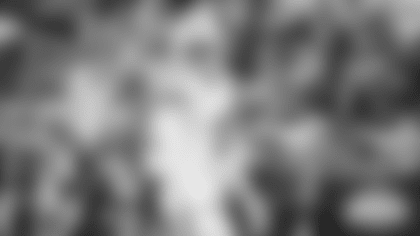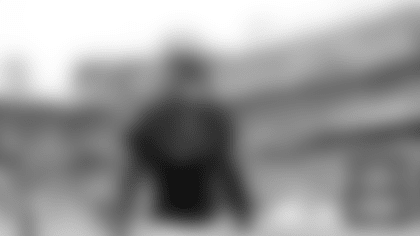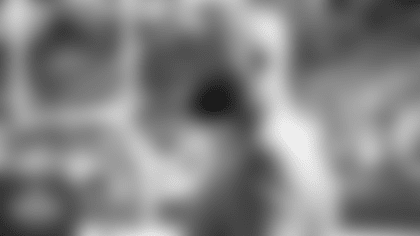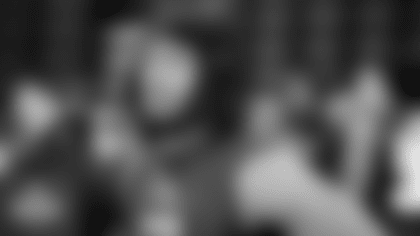The San Francisco 49ers converted 50-percent of their third-down attempts in Week 1 and beat the Los Angeles Rams by 28 points.
In Week 2, the 49ers had a 29-percent conversion rate on the money down and lost by 19 points to the Carolina Panthers.
To Blaine Gabbert, there's a correlation. San Francisco's unforced errors on first and second downs led to longer down-and-distances in last week's road loss.
The sixth-year pro pointed to the disparity between the first two weeks of the season when explaining his recent film evaluation.
"When you're 3rd-and-8, 9, 10, 11-plus, your percentage of converting goes down drastically," Gabbert said on Wednesday. "In the Rams game the week before, it was the exact opposite story. We were in third-and-manageable. We were executing well on first and second down, so when you're in 3rd-and-2, 3, 4, 5, we were 50-percent on third down. It was a different story this week."
Third-down execution comes into greater focus against the Seattle Seahawks, whose defense leads the NFL in points allowed (9.5), yards allowed per game (248.5) and third-down conversion rate (6-of-26, 23.1 percent).
With Gabbert under center last season in Seattle, the 49ers were 2-of-11 on third down. The quarterback completed 22-of-34 passes for 264 yards with one touchdown, no interceptions and a quarterback rating of 98.2 rating in a 29-13 loss.
The experience should have Gabbert better prepared for what he'll encounter in one of the loudest road environments in the league.
"Every stadium's loud," Gabbert began. "Seattle just happens to be maybe a little louder than some. But when you're on the road, there's going to be specific situations in the red zone, key third downs like I talked about last week that the fans are going to be into it. But that just means from an offensive standpoint we have to be on our game. We've got to be focused on the snap count, focused on all our non-verbal communication and just execute at a higher level."
Chip Kelly's offensive scheme uses hand signals from the sideline to give further information to the players when lining up in a no-huddle attack. The days of the 49ers huddling up and trying to hear a quarterback barking out a full play call are long gone.
In fact, San Francisco used a slowed-down no-huddle attack at times last week in Carolina. The 49ers lined up on the ball and looked at Kelly's staff for instructions before every snap of a 7-play, 59-yard scoring drive that resulted in a 28-yard touchdown hookup from Gabbert to wideout Torrey Smith.
"We don't try to operate at a very quick pace and don't try to run more plays than other people run," Kelly said of his system. "(We're) just trying to take advantage of what the defense is (doing). Sometimes when you're playing against a multiple defense, you want to make sure you're in the right play, and we can have checks that are done at the line of scrimmage."
The non-verbal communication should help San Francisco offensive efficiency in Seattle.
"In year's past there was a lot of verbal (communication) and looking at one person for cues," tight end Garrett Celek explained. "With this (system), we're able to get a play and go. I think it'll be a lot more efficient, for sure. No play clock errors."
Still, the onus is on the offense as a whole to perform better and help Gabbert to improve on his 54.9 completion percentage through two games. The 49ers also want to establish the running game after dipping from 150 yards in the season opener to 65 yards in Week 2.
"It's a group effort," Gabbert said. "Just like anything on offense, when you're running the football and throwing the football, there's 11 guys that have got to be on the exact same page for any play to execute at a high level.
"On incompletions in the game, there was a multitude of factors on why a specific ball wasn't completed. Sometimes it was the throw and that goes on me. That's just something that we're working to correct right now. And as we go along in the season, we're working hard in practice throughout the week to eliminate that on gameday."





